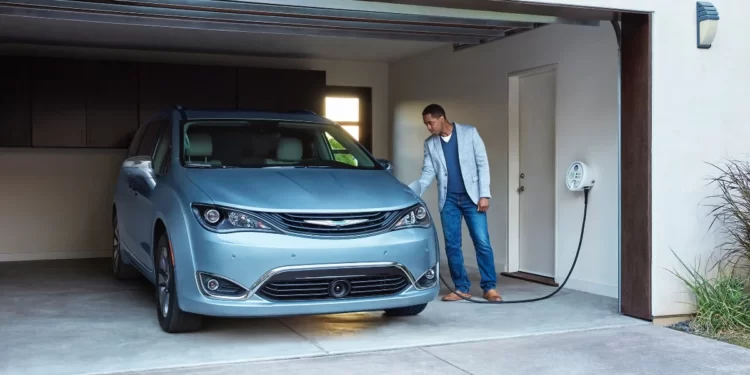The increasing popularity of electric vehicles (EVs) signifies a remarkable shift in the transportation landscape.
As the world continues to prioritize eco-friendly solutions, the demand for EVs and their respective charging stations grows exponentially.
This article will delve into the advantages of electric cars, explore the variety of home charging station options, and guide you through the process of installing a charging station at your residence.
As industry leaders in electrical services, we are committed to helping you make a seamless transition into the world of electric vehicles.
Are EV Vehicles Worth it in Canada?
Electric vehicles (EVs) are becoming increasingly popular in Canada, and for good reason. The country’s commitment to reducing greenhouse gas emissions and promoting environmentally friendly practices makes EVs ideal for Canadians.
With the expansion of charging infrastructure, including home charging stations, EV owners can conveniently recharge their vehicles across the nation.
Additionally, the Canadian government offers incentives and rebates for EV purchases, making them more accessible and affordable for consumers. Despite the cold winters, modern electric vehicles have advanced technology and features to ensure optimal performance and comfort in various weather conditions.
Electric vehicles are not only a viable option in Canada but also contribute positively to the country’s sustainability goals and the well-being of its residents. Make sure you contact a trusted and qualified electrician for any EV charger installations.
I. The Appeal of Electric Vehicles
Electric cars are swiftly becoming the preferred choice for many drivers. Their environmental benefits, low operating costs, and advanced technology make them an increasingly attractive option. Some of the advantages of electric vehicles include:
- Environmental Benefits: EVs produce zero direct emissions, meaning they are far more eco-friendly than their gas-powered counterparts. This contributes to cleaner air, reduced greenhouse gas emissions, and a healthier environment.
- Low Operating Costs: Electric vehicles often have lower maintenance and fuel costs. Charging an EV is cheaper than filling a traditional car with gasoline, and with fewer moving parts, maintenance requirements are reduced.
- Government Incentives: Many governments are offering incentives for EV owners, such as tax breaks, rebates, and reduced registration fees. These incentives can make the initial purchase more affordable and further encourage EV adoption.
- Enhanced Driving Experience: Electric cars are known for their quiet operation and smooth acceleration. This can result in a more enjoyable and less stressful driving experience.
II. Home Charging Station Options for Electric Cars
Charging infrastructure is rapidly expanding to accommodate the growing number of electric vehicles. There are three main types of charging stations suitable for residential use:
- Level 1 Charging: Level 1 charging utilizes a standard 120-volt AC outlet and is included with the vehicle. It’s the slowest charging method and is best suited for overnight or long-duration charging.
- Level 2 Charging: Level 2 charging stations require a 240-volt AC outlet and offer a faster charging rate. These stations can charge most electric vehicles within a few hours, making them ideal for home use.
- DC Fast Charging: Also known as Level 3 charging, DC fast charging stations provide the quickest charging rate available. However, due to their high power requirements, they are less common in residential settings and typically found along highways and commercial areas.
III. Installing a Home Charging Station
For most EV owners, installing a home charging station is a convenient and cost-effective solution. Our team of experts can guide you through the process to ensure a smooth installation. Here’s a step-by-step guide to setting up a home charging station:
- Assess Your Electrical Capacity: Consult with a professional electrician to determine if your home’s electrical system can support the additional load of a charging station.
- Choose the Right Charging Station: Select a charging station that is compatible with your electric vehicle and meets your specific needs, such as charging speed and connectivity features.
- Obtain Necessary Permits: Depending on your local regulations, you may need to obtain permits before installing your charging station. Our team can help you navigate this process.
- Installation: Once all the prerequisites are met, our team of experienced electricians will install your charging station safely and efficiently, ensuring it’s up to code and ready for use.
- Inspection: After installation, a final inspection may be required to ensure the charging station is compliant with local regulations and safety standards
Embracing electric vehicles is crucial for a greener and more sustainable future. Gaining insights into the advantages of electric cars and exploring the array of home charging station options empowers you to make a well-informed decision when transitioning to an environmentally friendly mode of transportation. By installing a home charging station, you can enjoy the convenience, cost-effectiveness, and satisfaction of contributing to a cleaner world.






